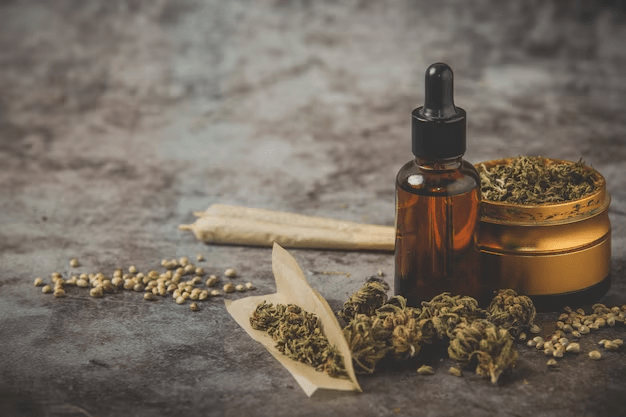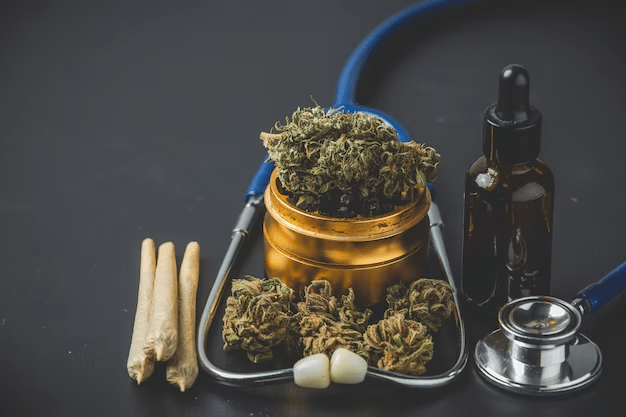THC cartridges, often referred to as THC carts, have gained widespread popularity. These discreet and convenient cartridges are loaded into sleek vape pen devices, making them prevalent in both legal and illicit markets.
What Exactly Are THC Carts? 6 Things You Should Know

What Exactly Are THC Carts? 6 Things You Should Know
THC cartridges, often referred to as THC carts, have gained widespread popularity. These discreet and convenient cartridges are loaded into sleek vape pen devices, making them prevalent in both legal and illicit markets. However, for those new to cannabis or unfamiliar with the evolving concentrate market, understanding THC cartridge can be confusing. In this article, we’ll explore the six essential aspects of THC cartridges, shedding light on their composition, types, compatibility with vaporizer pens, dosage control, legality, and potential risks.
Here are the 6 Essential Things You Should Know
Composition of THC Cartridges
THC cartridges often contain an intensely concentrated form of THC extracted from the cannabis plant through the use of solvents such as butane or CO2. During the extraction process, these solvents are utilized to isolate THC from the plant material, resulting in a potent THC oil. To ensure optimal vaporization, a thinning agent, such as propylene glycol (PG) or vegetable glycerin (VG), is added to the THC oil, adjusting its viscosity. Some cartridges may also incorporate flavorings, offering users an enhanced and enjoyable experience.
Types of THC Cartridges
There are two main types of THC cartridges available: distillate cartridges and live resin cartridges. Distillate cartridges are known for their highly refined THC extract, resulting in a clear and potent oil. On the other hand, live resin cartridges are designed to preserve more of the plant’s natural compounds, offering a fuller spectrum of cannabinoids and terpenes, which means that live resin cartridges provide a more nuanced and aromatic experience than distillate cartridges.
Personal preferences are crucial when choosing between distillate and live resin cartridges. Distillate cartridges are often favored for their ability to deliver a cleaner high. In contrast, live resin cartridges offer a more well-rounded experience with a broader range of flavors and effects. Whether you prefer the purity and potency of distillate or the complexity and richness of live resin, there is a THC cartridge option to suit your tastes and needs.
Compatibility with Vaporizer Pens
THC cartridges are designed to work seamlessly with vaporizer pens, also known as vape pens. These discreet and convenient devices consist of a battery, a heating element, and a cartridge connection. Users can effortlessly attach the THC cartridge to the pen thanks to its user-friendly design. Once activated, the heating element gradually warms the THC oil, transforming it into an inhalable vapor that provides a smooth and enjoyable experience. This feature ensures that cannabis enthusiasts can savor the delightful flavors and effects of THC in a hassle-free manner. With their portability and efficiency, THC cartridges and vape pens have become popular choices for those seeking a convenient and discreet way to enjoy cannabis products.
Dosage and Control
One significant advantage of THC cartridges is the ease of dosage control they offer. Each cartridge comes pre-filled with a specific amount of THC, usually measured in milligrams, providing users with precise control over their cannabis consumption. This level of control facilitates the management of their desired level of intoxication, allowing users to customize their experience according to their preferences.
For beginners, starting with lower dosages and gradually increasing as needed is recommended, ensuring a comfortable and enjoyable experience while minimizing the risk of potential discomfort or adverse reactions. By offering this level of control and flexibility, THC cartridges offer a convenient and user-friendly avenue for cannabis enthusiasts to safely and systematically experience the benefits of THC.
Legality and Regulation
The legality of THC cartridges varies depending on the jurisdiction. In areas where cannabis is legalized for either recreational or medicinal purposes, consumers have the option to obtain THC cartridges from licensed dispensaries that uphold stringent regulations and maintain high-quality control standards. These licensed dispensaries offer a wide range of THC cartridge options, allowing consumers to choose products that suit their preferences and needs.
However, it is crucial for consumers to be aware of specific regulations, such as age restrictions and possession limits, and to purchase products only from reputable sources that prioritize safety and transparency. On the other hand, in areas where cannabis is illegal, the use and possession of THC cartridges may result in legal consequences, as law enforcement agencies actively enforce laws about cannabis prohibition. Individuals in such areas need to understand the local laws and regulations surrounding cannabis and THC products to avoid any potential legal issues.
Potential Risks and Considerations
While THC cartridges offer a convenient and discreet method of cannabis consumption, users should be aware of potential risks. When vaporized and inhaled, the thinning agents used in some cartridges, such as propylene glycol (PG) and vegetable glycerin (VG), may pose health concerns. These agents can potentially irritate the respiratory system and throat.
Moreover, the lack of uniformity in the manufacturing process raises the possibility of contaminants or inaccurate labeling, which can further compromise safety. Prioritizing safety by purchasing products from reputable sources, thoroughly understanding the ingredients used in cartridges, and being mindful of one’s health and well-being is crucial for responsible consumption.
THC cartridges have become a popular choice for cannabis enthusiasts seeking a convenient and discreet method of consumption. Understanding the composition, types, compatibility with vaporizer pens, dosage control, legality, and potential risks associated with THC cartridges is essential for making informed decisions. Responsible use, adherence to local regulations, and prioritizing safety are paramount. By staying informed, consumers can enjoy the benefits of THC cartridges while minimizing potential risks.









